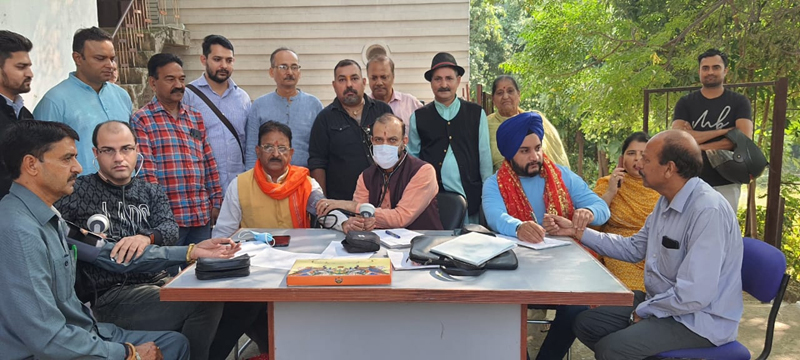
Excelsior Correspondent
Jammu, Oct 30: To strengthen their Campaign further to aware the common populace about the ill effects of Cardiovascular diseases, Dr Sushil Sharma, HoD Cardiology GMC Jammu and his team held a day long camp at Project Model Higher Secondary School, Pamposh Colony , Janipur. More than 250 people were screened, evaluated, diagnosed and free medicines were given to the needy. The main aim was to spread the awareness regarding cardiac ailments and to screen high risk individuals. People of all age groups and communities participated and they were educated about the rising prevalence of cardiac ailments in winter season also and ways to decrease the same.
While interacting with the people, Dr Sushil stated that cold weather is the most common health risk encountered in the winter, but people often view the danger in the extreme, as hypothermia or frostbite. However, the drop in temperature can impact our health, specifically heart, in ways one may not expect. The main risk factor is biological: cold causes blood vessels to contract, which can raise blood pressure, increasing the risk of heart attack and stroke. Angina or chest pain due to coronary heart disease, can also worsen in winter when coronary arteries constrict in the cold. Furthermore, heart has to work extra hard to maintain a healthy body temperature, and winter wind can make this even more difficult because it causes the body to lose heat more quickly. If body temperature drops below 95 degrees, hypothermia can damage the heart muscle. Lifestyle changes, particularly physical activity, can impact risk as well
He further stated that CVD is the number one cause of death worldwide. “Seasonal variation in morbidity and mortality due to CVDs has been noted in both the northern and southern hemispheres, with higher incidence rates during the winter than in the summer. This variation linked with multiple risk factors, such as temperature, physical activity, air pollution, infections, and food habits. Another potentially important seasonal risk factors such as seasonal variation in the plasma level of fibrinogen, cholesterol, Hormones and vasoactive substance,” he said.
Others who were part of this camp include Dr Anitipal Singh (Orthopaedics) and Dr Dhaneshwer Kapoor, Paramedics and Volunteers include Raghav Rajput, Kamal Sharma, Rajkumar, Ranjeet Singh, Gourav Sharma, Suraj Sharma, Maninder Singh, Mukesh Kumar and Akshay Kumar.

